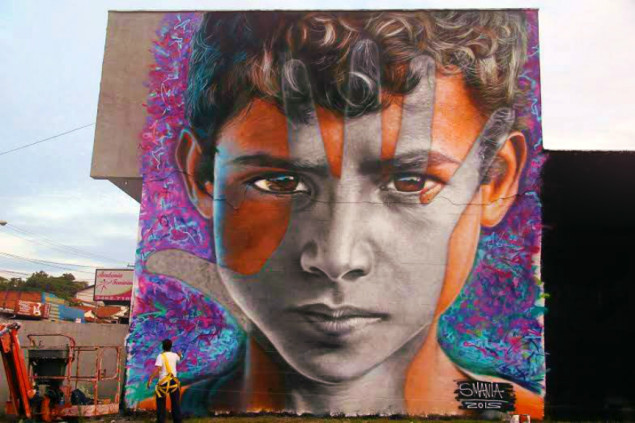Source: frontrow.dmagazine.com
Harassed, arrested, jailed, tortured, killed…These are just a few of the options facing people of the Baha’i faith in Iran. Since its inception in 1844, the religion has been effectively criminalized in its home country, its hundreds of thousands of adherents persecuted. It’s a religion that promotes the spiritual unity of humanity–asserting that we are derived from the same God, irrespective of religion. They believe that all people are worthy of acceptance, and that diversity should be appreciated. Unfortunately, the Islamic government in Iran doesn’t agree. After the Iranian revolution of 1979, attacks on Baha’is intensified and more than 200 Baha’is were killed in an attempted ethnic cleansing until the international community pressured the government to stop. The religious minority continues to be oppressed.
Sina Sarvestani, a Baha’i who immigrated to Dallas from Iran in 2006, had two family members who were executed: His grandfather, a rural healer, and his second cousin, a 25-year-old nurse who taught Baha’i children about their faith, which is a crime in Iran. Other crimes the Baha’i have been charged with include accessing higher education. Members of the faith are banned from earning any degrees more advanced than a high school diploma and are often thrown in jail for attending college and teaching classes in an underground university called the Baha’i Institute for Higher Education.
Press freedoms in Iran are also strongly restricted. Canadian-Iranian journalist Maziar Bahari was essentially found guilty of the crime of journalism when he was on assignment for Newsweek in 2009. After being arrested for alleged espionage, Iranian authorities jailed and tortured Bahari for three months. (His ordeal was turned into the 2014 feature film Rosewater.) During his detainment, he met Baha’is and learned about their situation, which prompted him to start the “Education is Not a Crime,” or #notacrime, initiative. It’s an international street art awareness campaign that encourages legal street murals and the use of the hashtag #notacrime on social media to raise awareness about the Baha’is and put international pressure on the Iranian government to change its stance.
Murals have gone up in cities around the world, including New York, Sydney, Cape Town, London, Rio de Janeiro, and now Dallas. Sarvestani and a group of Baha’i in the immigrant and refugee community of Vickery Meadow spearheaded the #notacrime mural here, the first in Texas. Rooha, a 15 year-old Iranian Baha’i refugee (who did not want to use her last name for this article) approached Carol Zou, program manager of the social art project Trans.lation: Vickery Meadow, to make the mural happen. More than 10 young people from nations including Nepal, Mongolia, Iran, and the U.S. pitched in to paint it. It’s now installed at the H. Paxton Moore gallery at El Centro College until Feb 17.
Sarvestani, a teacher’s assistant at Sam Tasby Middle School in Vickery Meadow, said they did the mural to give voice to the voiceless — those who aren’t lucky enough to leave Iran and would be punished for speaking out. Despite the persecution his family faced, his parents were determined to stay in their home country, but eventually came to terms with the fact that there was no future for their three sons if they couldn’t earn professional degrees. The family left Iran after Sarvestani’s older brother graduated high school. After a year in Turkey, the family settled in the Vickery Meadow neighborhood, where Sarvestani leads in an active role as a teacher’s assistant and mentor for the Junior Youth Spiritual Empowerment Program — a Baha’i-sponsored group for youth of all religions and backgrounds.
Another one of the lucky few to escape is Vahid, and he had a close call. (Vahid also asked that his last name not be printed for this article because he has family still in Iran.) He came to Dallas in August of 2015 to get a master’s degree in computer science after earning his bachelor’s degree from the Baha’i Institute of Higher Education. BIHE degrees are not recognized in Iran, yet are accepted in the U.S., the United Kingdom, and Australia.
While completing his undergrad degree, he was arrested and held for five days by Iranian police for attending BIHE. They wanted him to sign a pledge that he would resign from the university. He refused, but eventually ended up signing an agreement that was less severe. Two of his computer science professors, Azita Rafizadeh and Payman Koushk-Baghi, a wife and husband with a 5 year-old son, were arrested and asked to sign a pledge that they would renounce their teaching positions in the underground university, Vahid says. They also refused and were sentenced to four and five years in prison, respectively. Vahid hopes to one day serve on the faculty for BIHE, which is now operating solely online after a series of government raids resulted in professor and student arrests and the destruction and confiscation of libraries, course material, and computer equipment.
The magnitude of the situation isn’t lost on me that as I sit here comfortably writing about the plight of the Baha’i with no threat of danger, more than 50 journalists and countless other students, professors, business owners, young professionals, and Baha’i of all walks of life are currently imprisoned in Iran for lesser offenses.
Things we take for granted in the Western world, like the ability to use social media to self-organize or promote a cause, are also grounds for imprisonment in Iran. Hashtagging is the most banal of online activities, and most of us who use social media don’t think very hard about it. And yet, Savestani says that the act of posting photos of the #notacrime murals around the world with the hashtags #notacrime, #educationisnotacrime, and #bahai has real power to draw international attention and affect change, and it might be the best chance the Baha’i have for a better future.
Visit the “Education Is Not a Crime” page on Facebook for more info.


Leave a Reply